How Porta-Grazer Can Help Prevent and Treat Ulcers
Dont Let Ulcers Keep Your Horse From Performing Its Best
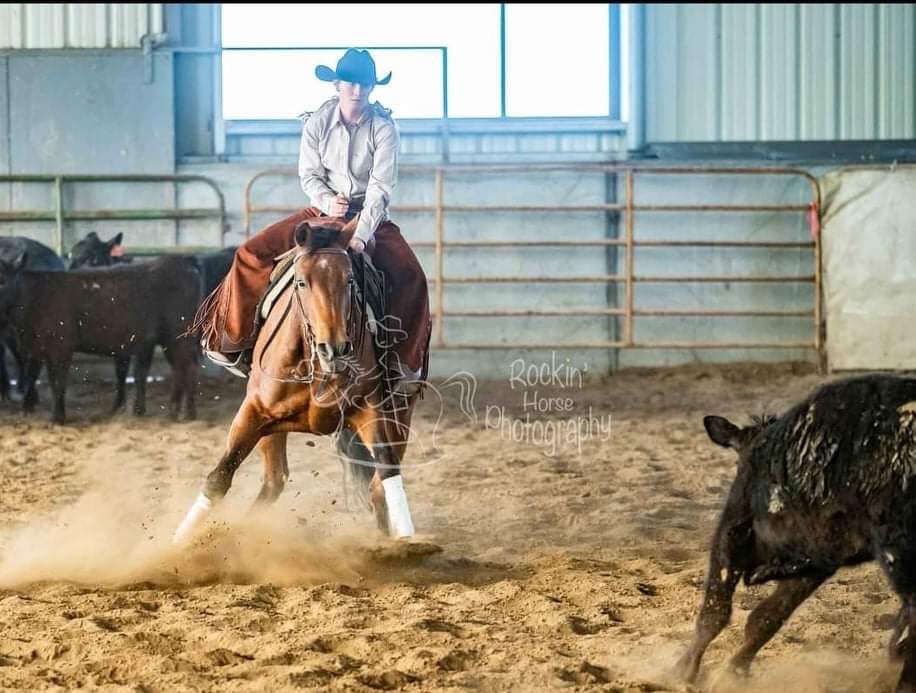
Using a Porta-Grazer can help save money on costly ulcer medications
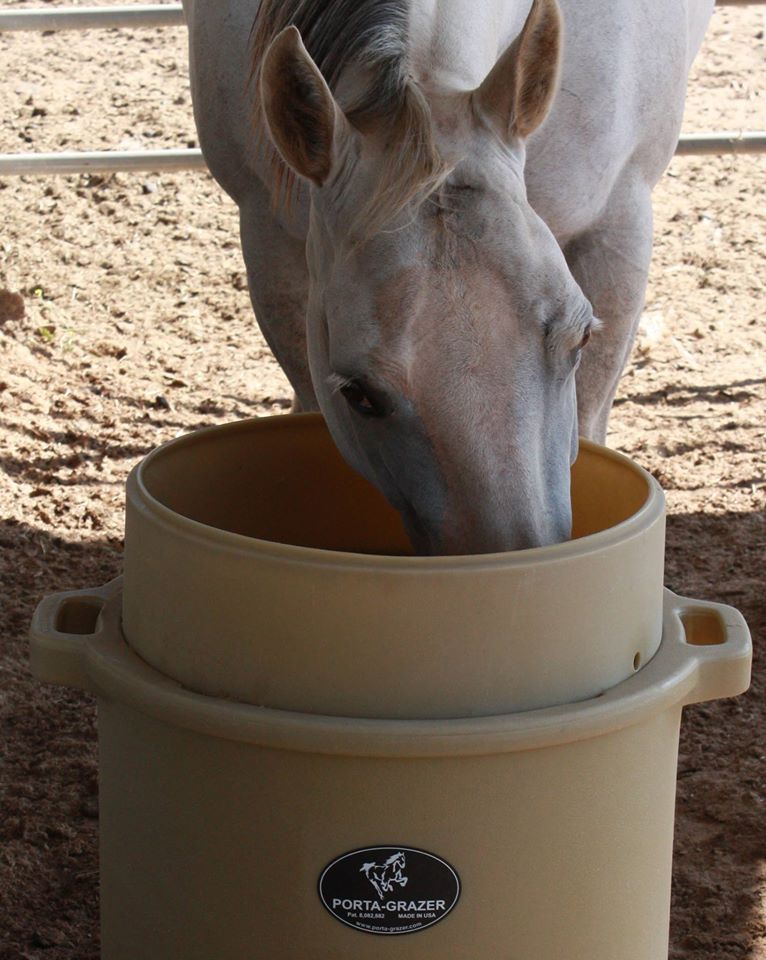
Balancing Calories and Volume
Ulcers can cause performance issues as well as bad stall habits Horses need access to forage 24/7 to keep their stomach acid buffered to prevent ulcers. But how do we provide forage 24/7 without the horse becoming fat? EASY! In order to maintain weight use a low calorie grass hay, such as Timothy, Teff or Bermuda. It's the calories IN the hay that needs regulated not the volume of hay. So, in order to give your horse the ability to keep that acid in check as nature intended, there needs to be a continuous supply of low calorie forage at all times.
Horses that are allowed to eat as much hay as they need are generally more relaxed and content. Therefore, they perform better. The horse is able to keep the stomach acid in balance. Which reduces vices such as wood chewing, pawing, racking their teeth on the stall etc.
What if I cant find low calorie hay?
Sometimes we don't have a choice on what we can find for hay. One option is using straw. Oat, wheat or barley straw. By mixing the straw in with your hay in the Porta-Grazer it adds more volume without adding much in the way of calories.
How does a Porta-Grazer help?
By putting low calorie forage in the Porta-Grazer your horse is able to graze in a more natural head down position. Which allows the jaw to slide into position for proper chewing.
The rotating pan lifts the bits of hay up thru the holes and holds it so the horse is able to size and tear each bite. Same as if in pasture. Therefor providing more chew time that produces more saliva to buffers the stomach acid.
Once the horse is self regulated it will eat what it needs to buffer the acid and walk away. Then as the acid builds it will come back again to graze as needed.
Horses naturally graze 18-20 hours a day.
Using a Porta-Grazer also prevents wasted hay, and keeps the hay off the ground and out of the mud, sand, dirt, snow etc.
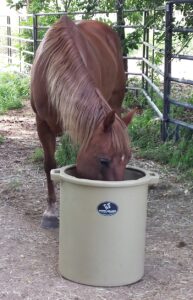
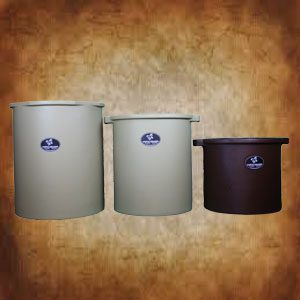
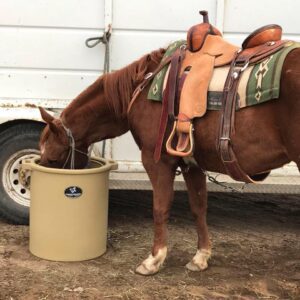
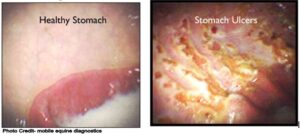
Why Grazing Protects Your Horses Digestive System
Many types of ulcers
There many types of ulcers and many causes. Most common are gastric ulcers. One of the main causes of gastric ulcers is the hydrochloric acid build up in a horse’s empty stomach. A horse produces digestive acid (around 10 gallons per day) in a never ending flow. This is to match the seemingly continuous flow of forage the horse is designed to take in. Because the constant intake of forage and saliva has a buffering effect on the stomach acid bringing the pH to balance. When the pH is in balance the burning effect of the acid is neutralized. So, when the acid level rises to an uncomfortable level the horse chews it back to balance.
How ulcers occur
The bottom of the stomach is thick and glandular while the top is a sensitive thin membrane. Acid in an empty stomach can burn a hole in the upper stomach in as little as 15 minutes while exercising. Autopsies of horses that die from colic most always reveal an ulcer or history of ulcers.
How Porta-Grazer helps
Using a Porta-Grazer promotes digestive health. By allowing the horse to consume forage in a natural manner. Because that forage is always available, and each bite is being sized and mixed with saliva sufficiently, the stomach acid is kept buffered. Also having the ability to graze when necessary relieves stress that can also cause gastric ulcers.

